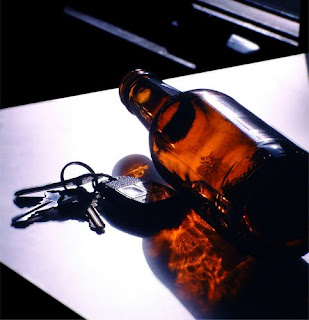Tuesday, May 18, 2010
Who is George Santayana?
Read more here...
(Resource - http://plato.stanford.edu/entries/santayana)
Sunday, May 16, 2010
What the hell is Crohn's Disease?
Crohn’s disease is an ongoing disorder that causes inflammation of the digestive tract, also referred to as the gastrointestinal (GI) tract. Crohn’s disease can affect any area of the GI tract, from the mouth to the anus, but it most commonly affects the lower part of the small intestine, called the ileum. The swelling extends deep into the lining of the affected organ. The swelling can cause pain and can make the intestines empty frequently, resulting in diarrhea.

The digestive system.
Crohn’s disease is an inflammatory bowel disease, the general name for diseases that cause swelling in the intestines. Because the symptoms of Crohn’s disease are similar to other intestinal disorders, such as irritable bowel syndrome and ulcerative colitis, it can be difficult to diagnose. Ulcerative colitis causes inflammation and ulcers in the top layer of the lining of the large intestine. In Crohn’s disease, all layers of the intestine may be involved, and normal healthy bowel can be found between sections of diseased bowel.
Crohn’s disease affects men and women equally and seems to run in some families. About 20 percent of people with Crohn’s disease have a blood relative with some form of inflammatory bowel disease, most often a brother or sister and sometimes a parent or child. Crohn’s disease can occur in people of all age groups, but it is more often diagnosed in people between the ages of 20 and 30. People of Jewish heritage have an increased risk of developing Crohn’s disease, and African Americans are at decreased risk for developing Crohn’s disease.
Crohn’s disease may also be called ileitis or enteritis.
http://digestive.niddk.nih.gov/ddiseases/pubs/crohns/#what
Saturday, May 1, 2010
The Texas DWI Sucks
 Going out drinking is fun. We just need to start using our brains before we start get drunk. Here is a little info that might help you start thinking before you start drinking.
Going out drinking is fun. We just need to start using our brains before we start get drunk. Here is a little info that might help you start thinking before you start drinking.Real quick, let's point out that if a law enforcement officer asks you to submit to a breath or blood test to determine the alcohol content of your blood, and if you refuse, your license will probably be taken away from you on the spot and suspended for six months. This is in addition to any suspension you might get later if you're convicted of DWI.
Below are the basic penalties for various DWI violations. However, in addition to these, DWI convictions carry an additional financially devastating penalty called conviction-based surcharges. This is an ongoing additional fine that must be paid each year for three years, and it can run you thousands of dollars. We discuss this program more fully in our article about the driver license point system.
Drivers 21 and Over
- First offense:
- Up to a $2,000 fine
- Possibly 72 hours to 180 days in jail
- Driver license suspension: 90 days to one year
- Second offense:
- Up to a $4,000 fine
- Thirty days to one year in jail
- Driver license suspension: 180 days to two years
- Third offense:
- Up to a $10,000 fine
- Two to 10 years behind bars
- Driver's license suspension: 180 days to two years
Drivers Under 21
The threshold for an alcohol-related driving conviction is lower for drivers under 21. If you're not of legal drinking age, then it's against the law to operate a vehicle with any measurable amount of alcohol in your blood (this is what "zero tolerance" refers to). If you're busted for driving after having had only one beer, here's what can happen to you the first time:
- Any measurable amount of alcohol:
- Sixty-day driver's license suspension
- Up to a $500 fine
- Twenty to 40 hours of community service
- Mandatory attendance in alcohol-awareness classes
- BAC of 0.08% or higher:
- If you're caught driving with a BAC of 0.08% or higher and you're under 21, you can count on the same DWI penalties as apply to those over 21 (see above), plus a conviction for underage drinking.
Driving With a Child
Driving drunk with a child passenger is considered a felony. If caught, your license will be immediately suspended.
So the lesson here is, don't drink and drive. Call a cab, it's cheaper!
(Info from: http://www.dmv.org)


